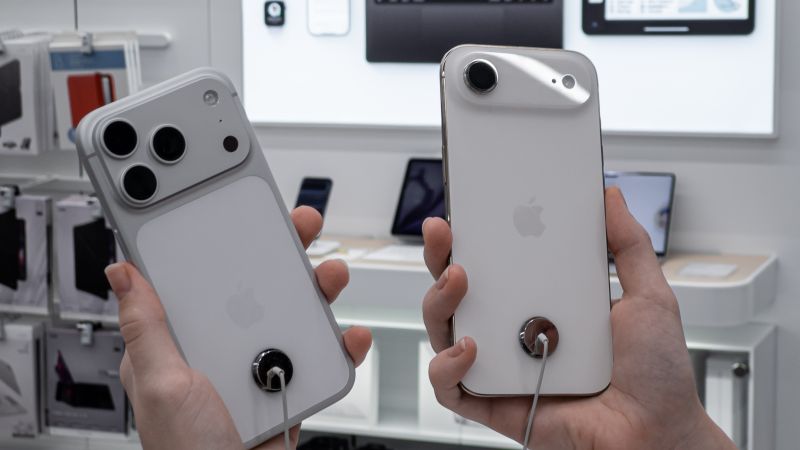Each year, whenever Apple unveils a new iPhone lineup, tech reviewers, analysts, and enthusiasts put the latest devices through rigorous experiments to assess just how durable they are. The launch of the iPhone 17 series this September has been no exception, with much of the spotlight falling on Apple’s slimmest model yet — the iPhone Air.
Announced on September 9 alongside the iPhone 17 Pro and iPhone 17 Pro Max, the iPhone Air has generated significant buzz for its ultra-thin design. Weighing just 165 grams and measuring 5.6 millimeters in thickness, it is officially the thinnest iPhone Apple has ever made. Yet its lightweight build has raised questions: is the iPhone Air more fragile than its bulkier siblings?
To address these concerns, Allstate Protection Plans, a device insurance company known for durability testing, conducted bending experiments on the new models. The results, while surprising to some, suggest that the iPhone Air is stronger than its size might imply.
According to the tests, the iPhone Air withstood more than 80 kilograms of pressure before bending, performing nearly on par with the iPhone 17 Pro, which withstood 90 kilograms. Both models feature a titanium frame, a material Apple says improves resistance to bending and external stress.
The standout performer, however, was the iPhone 17 Pro Max. Apple’s largest model demonstrated the highest structural strength, bending only after 100 kilograms of applied pressure. Experts note that its larger frame and internal reinforcement give it an advantage over thinner designs.
Despite the iPhone Air’s respectable test results, online debates have persisted about whether an ultra-thin phone can truly handle the rigors of everyday use. While everyday consumers are unlikely to exert 80 kilograms of force on their smartphones, the concern highlights a long-standing tension between sleek design and practical durability.
Apple, for its part, has emphasized that titanium not only adds structural resilience but also keeps the iPhone Air lightweight and comfortable for daily handling. The company insists that the new engineering approach represents a balance of style and strength.
In terms of pricing, the iPhone Air starts at $999 for the 256GB model. Customers who want more storage can choose from 512GB and 1TB options, priced at $1,199 and $1,399 respectively. The pricing positions the iPhone Air as a premium option aimed at users who value portability and design innovation.
The launch of the iPhone 17 lineup comes as Apple continues to push design boundaries in the competitive smartphone market. While the iPhone Air may not match the brute strength of the iPhone 17 Pro Max, its performance in bend tests indicates that it offers durability comparable to the more traditional iPhone 17 Pro, despite being considerably slimmer.
For now, early adopters and durability testers alike will continue to scrutinize Apple’s bold design choice. The verdict from Allstate’s testing is clear: while the iPhone Air is not the toughest of the series, it is far from fragile — a reassuring outcome for those drawn to Apple’s thinnest iPhone yet.

